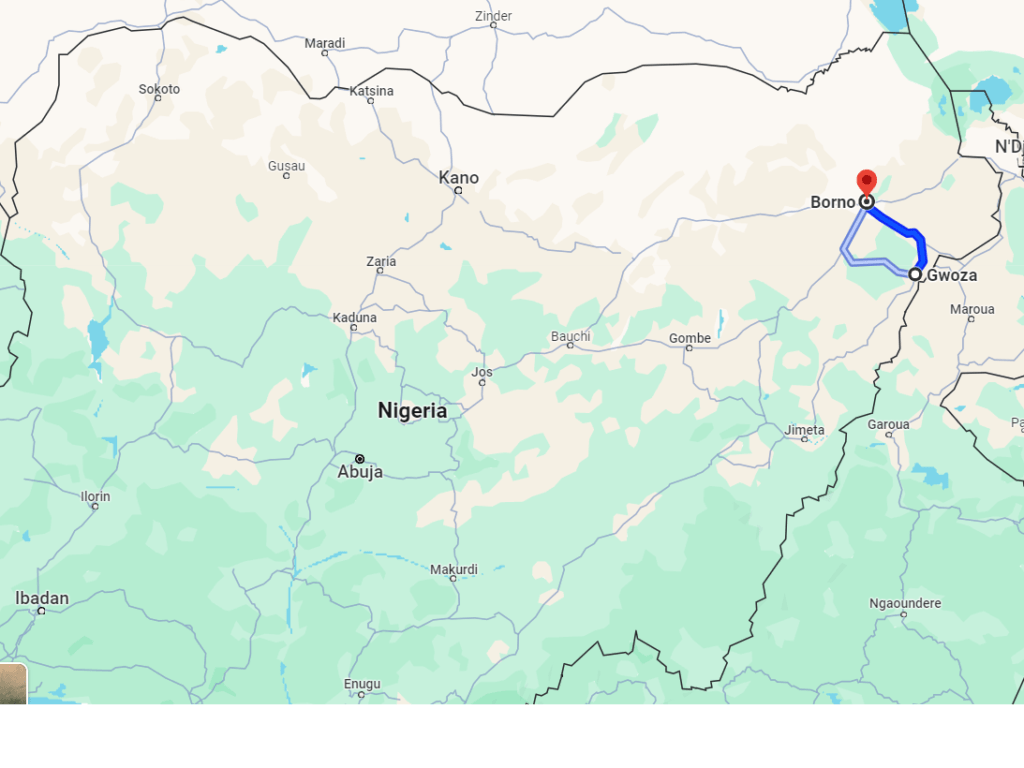Gwoza, Nigeria – In the early hours of June 30, a series of coordinated blasts rocked the northeastern town of Gwoza in Borno state, Nigeria, leaving at least 18 people dead and 30 injured. The tragic attacks are believed to have been carried out by female suicide bombers, a tactic previously employed by insurgent groups in the region.

Devastation at a Wedding
One of the bombings occurred during a wedding ceremony, claiming six lives and injuring many others. The blasts continued to target mourners at the subsequent funeral and even a local hospital, compounding the community’s grief and highlighting the attackers’ ruthlessness. The Borno State Emergency Management Agency confirmed these details, emphasizing the severity and coordination of the attacks.
Suspected Perpetrators
While no group has claimed responsibility for the bombings, the Nigeria-centred Islamic State West Africa Province (ISWAP) insurgents are strongly suspected. ISWAP, a splinter group from Boko Haram, has previously executed similar attacks in Borno state. The state has been a focal point of a 15-year insurgency by Boko Haram, resulting in over 40,000 deaths and displacing more than two million people.
Historical Context
Borno state has been synonymous with insurgent violence for over a decade. Boko Haram gained international notoriety in 2014 with the abduction of more than 270 schoolgirls from Chibok, drawing global condemnation and sparking the #BringBackOurGirls campaign. Despite military efforts to reclaim territory, including Gwoza in 2015, insurgent activities persist, perpetuating a cycle of violence and insecurity.
Casualties and Curfew
Local authorities have confirmed the deaths of 18 individuals, a number that includes children, adults, and pregnant women. However, some local media outlets, such as Vanguard and This Day, report a higher death toll of at least 30. In response to the attacks, the military has imposed a curfew in Gwoza, aiming to restore order and prevent further violence.
Recent Attacks in the Region
The latest blasts are part of a disturbing trend in Borno state, where attacks using suicide bombers and improvised explosive devices have increased over the past four months. In November, Boko Haram insurgents killed 20 people returning from a funeral in neighbouring Yobe state, following another deadly raid that claimed 17 lives in Gurokayeya village.
Why Gwoza Again?
- Gwoza has been a recurrent target for insurgents. What makes this town a particular point of interest for these groups?
Female Suicide Bombers: A Disturbing Trend?
- The use of female suicide bombers is particularly alarming. What measures can be taken to prevent the recruitment and radicalization of women and girls by these insurgent groups?
Security Measures and Military Response
- Despite the imposition of curfews and military presence, attacks continue. What are the gaps in the current security measures, and how can they be effectively addressed?
Impact on the Local Community
- The psychological and social impact on the residents of Gwoza is profound. What support systems are in place for the victims and their families, and what more can be done?
Long-Term Solutions to Insurgency
- Beyond immediate military responses, what long-term strategies are needed to address the root causes of insurgency in Borno state?
The recent attacks in Gwoza underscore the persistent threat posed by insurgent groups in northeastern Nigeria. As the community mourns the loss of loved ones, it is imperative to address the security challenges and support the affected families. Long-term solutions are needed to bring lasting peace and stability to the region.